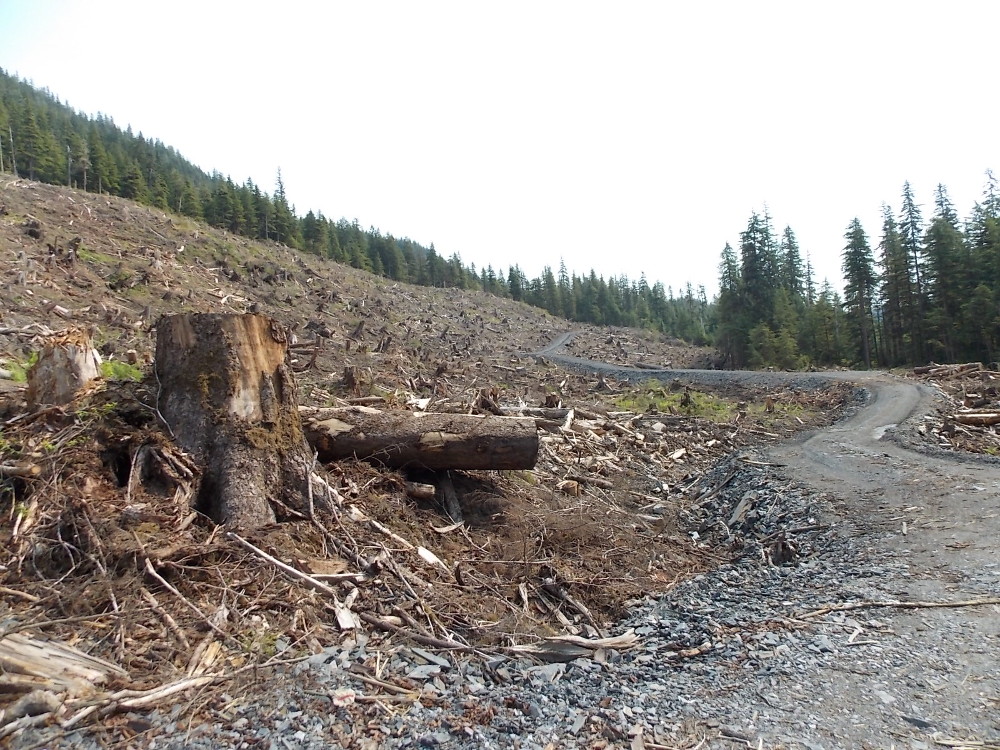
A watchdog group hopes a lawsuit will shake loose more evidence of lost revenue from timber sales on the Tongass National Forest in Southeast Alaska. The borough government in Petersburg has also sought answers about what’s been done to fix problems with little response.
Public Employees for Environmental Responsibility is a nationwide watchdog for group for current and former public sector workers based in Silver Spring, Maryland. It has published other internal documents from the U.S. Forest Service faulting oversight, transparency and accounting for timber contracts on Prince of Wales Island and near Petersburg. PEER in August has asked for the agency to release its audit of Tongass timber sales under the Freedom of Information Act. That request has yet to be fulfilled and the group is asking the courts to enforce the law. PEER’s Pacific director Jeff Ruch expects the audit will confirm those earlier findings.
“We think it’s timely in that as you know there’s an effort to dramatically expand logging on the Tongass by repealing the Roadless Rule and that if past is prologue and they’ve lost money on these earlier sales, you may be looking at a new gusher of red ink from new sales,” Ruch said.
He thinks the financials from the audit also should’ve been included in the recent environmental analysis on granting a full exemption of the Tongass from the Clinton administration’s Roadless Rule. A decision on opening up more areas of the Tongass to logging and roadbuilding is expected in the coming weeks.
Elected officials and residents in Petersburg have also asked about the extent of lost revenues from past timber sales and what’s been done to correct oversight with sale administration. Alaska regional forester Dave Schmid said last November in a public meeting that the audit was nearly complete. Nearly a year before that he said the agency was responding to timber sale issues.
KFSK and others submitted Freedom of Information requests for that audit in 2019 and but the agency has not produced it.
The Petersburg borough has also sent letters seeking answers dating back to 2018. Forest Service chief Vicki Christiansen responded that the agency would share more information. That was in May 2019. “We look forward to sharing with you those actions aimed to address any findings identified by the audit,” Christiansen wrote. Appeals to the Department of Agriculture’s Inspector General for a separate external review have so far been fruitless.
In 2016 staff with the Washington Office of the Forest Service found, among other things, that timber companies are leaving behind lower value hemlock and cutting more of the high value cedar and spruce, which changes the economics of timber sales and how those are appraised and awarded.
George Woodbury of Wrangell is a board member for the Alaska Forest Association, an industry group.
“The reason it’s not being taken is because we got the long-term sales taken away and the pulp mills so we don’t have the secondary manufacturing facilities,” Woodbury said. “We are no longer able to use everything that we were before. It’s the result of the environmental challenges and the fact that they shrunk the timber supply so much you can’t have an industry big enough to utilize all the wood.”
The Forest Service says it won’t comment on litigation. It referred inquiries to the Department of Justice, which did not immediately respond to questions this month.










